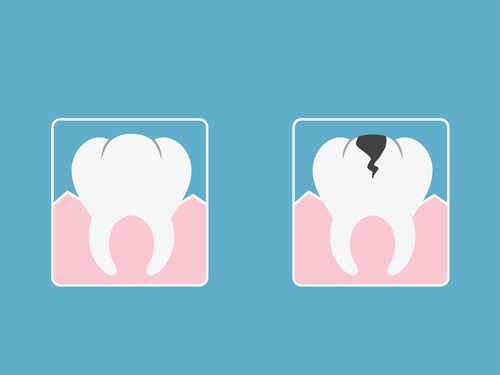What’s The Best Way to Floss
We all know we should floss, but it can be tough. Part of this is because flossing can feel like an extra task in an already busy day, but it...

Are your cavities your parents’ fault?
A recent study has us all asking ourselves one big question when it comes to our oral health – am I more prone to cavities and tooth decay because of my genetics?
To test this theory, we look to the case study from senior study author Karen E. Nelson, Ph.D, president of the JCVI, and her team as they dive into an impressive investigation of the oral microbiomes of 485 pairs of twins with ages ranging between 5 and 11 years old. Of these, 205 were identical twins that contain the most similar genetic background possible, and 280 fraternal twins that each hold their own heritable bacteria.
Twins are commonly chosen as the best subjects of a genetic investigation since they are likely to have had a very similar upbringing, and they are often the ideal subjects for studying the theory of “nature versus nurture”.
The final results of the study concluded that the composition of our oral bacteria when we are very young is predominantly influenced by our genetic background; however, the types of bacteria that are referred to as heritable bacteria do not play a role in tooth decay. Even more, as we age, our hereditary makeup becomes less dominant and factors such as diet and oral hygiene take on a stronger role in shaping our individual oral microbiome.
So…while you may be tempted to blame your parents for your cavities and other dental issues, the status of your oral hygiene is really up to you!
To simply state it, a microbiome is the collection of genes that live in our bodies. Many different studies have shown that there is mounting evidence of links between the oral microbiome and other illnesses, including oral cancer and cardiovascular disease. Of all the studies done on the connections between the gut microbiome and the link to one’s genetic background, there have been hardly any studies on the oral microbiome, making this an exciting case with current information that can be applied to our daily life.
In their study, the authors explain that tooth decay commonly results when certain types of bacteria metabolize “frequent sugar intake.” When this sugar intake takes place, it creates an acid environment in the mouth that weakens the tooth enamel and ultimately causes cavities.
While not all bacteria in our body is bad, the study also found that there are specific groups of bacteria that cause inflammation which leads to the destruction of gum tissue, the formation of “pockets” and also tooth loss.
You can’t point the blame for cavities and tooth decay at genetics, but you can look right to these risk factors:
Take charge of your oral hygiene and focus on these simple ways to prevent tooth decay right from home: